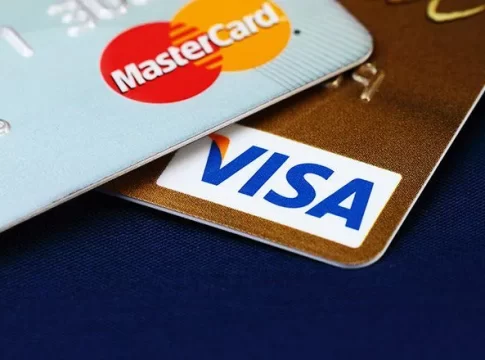On September 12, Mastercard announced its agreement to acquire threat intelligence company Recorded Future from Insight Partners for $2.65 billion. This acquisition aligns with Mastercard’s strategic initiatives to bolster its cybersecurity offerings and enhance its value-added services (VAS). Similarly, Visa has made significant acquisitions in the fintech space, positioning itself for future growth. This article delves into the benefits of these acquisitions for both companies, supported by exclusive data and analysis.
Mastercard is poised to significantly enhance its threat intelligence capabilities with the acquisition of Recorded Future. This move is crucial as the rapid adoption of digital technologies has exponentially increased the risk of cyber threats. Companies are now more susceptible to hacking and ransomware attacks, as evidenced by the recent cybersecurity incident at Evolve Bank in June. By integrating Recorded Future’s AI-driven analytics, Mastercard will be better equipped to identify potential threats and protect its vast network of transactions.
A notable benefit is the improvement in card fraud detection. Mastercard and Recorded Future have already been collaborating on a service that alerts financial institutions when a card is likely compromised. According to Mastercard, since the launch of this service earlier this year, the rate at which compromised cards are identified has doubled compared to the previous year. This enhancement in fraud detection not only safeguards Mastercard’s clients but also fortifies trust in the brand.
The acquisition is part of Mastercard’s broader strategy to expand its VAS offerings, with a particular emphasis on cybersecurity solutions. Analysts from TD Cowen have pointed out that this acquisition adds another layer of tools for securing transactions, both network- and non-network-based. This strategic push is expected to contribute to Mastercard’s mid- to high-teens percentage growth in VAS for the fiscal year 2025.
Visa’s Strategic Acquisitions
Visa has also been active in the acquisition space, making strategic moves to enhance its fintech capabilities. Two notable acquisitions include:
1. Tink Acquisition: On March 10, 2022, Visa completed its acquisition of Tink, an open banking platform that enables financial institutions, fintechs, and merchants to develop data-driven financial services. This acquisition enhances Visa’s capabilities in providing open banking solutions and expands its reach in the fintech space. Tink’s technology allows Visa to offer more personalized and innovative services to its customers, further solidifying its position in the financial services industry.
2. Pismo Acquisition: On January 16, 2024, Visa completed its acquisition of Pismo, a technology company that provides an all-in-one processing platform for banking, payments, and fintechs. This acquisition bolsters Visa’s processing capabilities and offers more comprehensive services to its clients. Pismo’s platform integrates seamlessly with Visa’s existing infrastructure, enabling the company to offer more efficient and scalable payment solutions.
With the acquisition of Tink, Visa is positioned to lead in the open banking space. Tink’s platform allows financial institutions to access financial data securely and offer improved financial services. This acquisition enables Visa to tap into new revenue streams by providing innovative financial products and services that cater to the evolving needs of the market.
The acquisition of Pismo significantly enhances Visa’s processing capabilities. Pismo’s all-in-one platform allows Visa to offer a broader range of services, including real-time payments, digital banking, and fintech solutions. This acquisition positions Visa as a comprehensive service provider in the payments industry, capable of meeting the diverse needs of its clients.
Financial Performance and Market Position for Both Companies
Mastercard’s gross dollar volume was a staggering $9 trillion last year, a testament to its dominant position in the payments industry. By acquiring Recorded Future, Mastercard not only strengthens its cybersecurity measures but also positions itself as a leader in providing comprehensive security solutions to its clients.
Visa, on the other hand, reported a total gross dollar volume of approximately $13 trillion for the fiscal year 2022. This figure underscores Visa’s leading position in the global payments ecosystem. Visa’s acquisitions of Tink and Pismo further enhance its capabilities and market presence, positioning it for sustained growth.
The deal between Mastercard and Recorded Future is expected to close by the first quarter of 2025, providing Mastercard with ample opportunity to integrate Recorded Future’s capabilities into its existing framework. Insight Partners’ previous acquisition of Recorded Future for over $780 million in 2019 underlines the significant value and growth potential that the company brings to Mastercard.
Visa’s acquisitions of Tink and Pismo are already showing positive impacts. The integration of these platforms allows Visa to offer more innovative and comprehensive services, enhancing its market position and driving long-term growth.
Mastercard’s acquisition of Recorded Future and Visa’s acquisitions of Tink and Pismo are strategic endeavors designed to enhance their respective capabilities in cybersecurity and fintech. By bolstering their technological infrastructure and expanding their service offerings, both companies are well-positioned to lead in the evolving financial services landscape. These moves not only underscore their commitment to innovation and security but also set the stage for sustained growth in an increasingly digital and threat-prone world.


